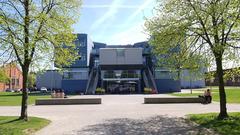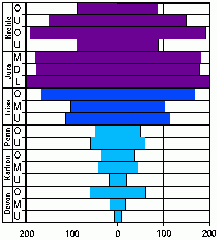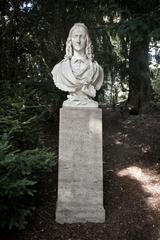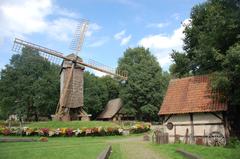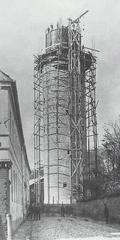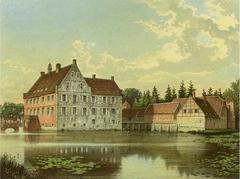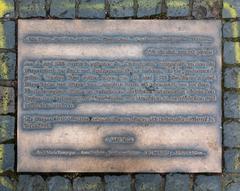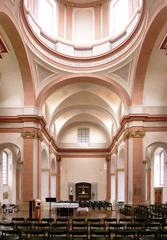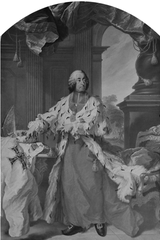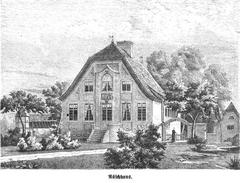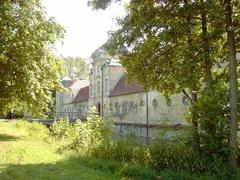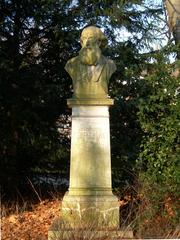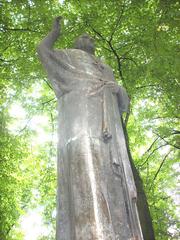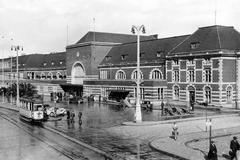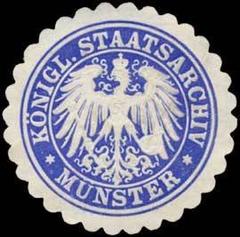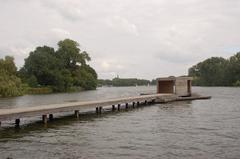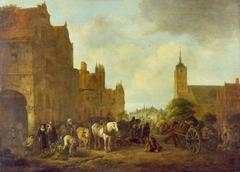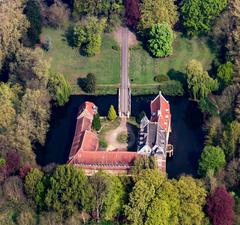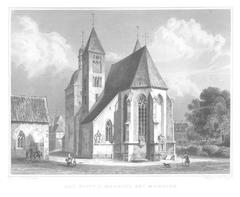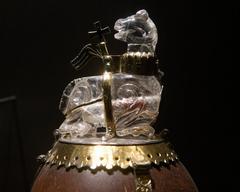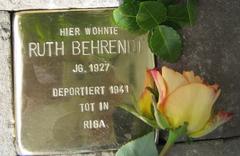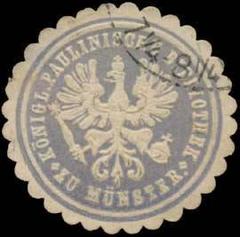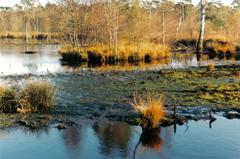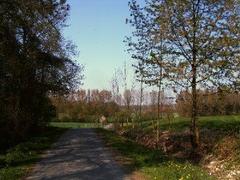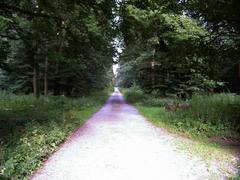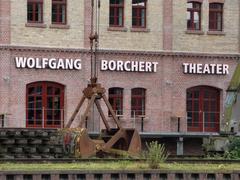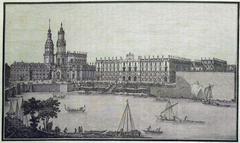Comprehensive Guide to Visiting LWL Museum für Naturkunde Münster, Germany
Date: 18/07/2024
Introduction
The LWL-Museum für Naturkunde in Münster, Germany, stands as a beacon of scientific curiosity and cultural heritage, attracting visitors from all walks of life. Established in 1831 by the Westphalian Provincial Association for Science and Art, the museum has grown substantially over the years, culminating in the inauguration of a new building in 1981 dedicated to paleontological wonders (Discover the LWL-Museum für Naturkunde). Renowned for its extensive collection of fossil marine reptiles from the Mesozoic Era, the museum offers an invaluable glimpse into the evolution of marine life. The museum’s commitment to public education is evident through its interactive exhibits, life-size models, and multimedia presentations, making scientific knowledge accessible and engaging for all visitors. Whether you’re captivated by giant dinosaurs, intrigued by the evolution of life on Earth, or fascinated by the celestial wonders of our galaxy, the LWL-Museum für Naturkunde has something extraordinary to offer. This comprehensive guide provides essential visitor information, including ticket prices, visiting hours, and tips for a seamless experience, ensuring that your visit to this remarkable institution is both enriching and enjoyable.
Table of Contents
- Introduction
- History and Significance of LWL-Museum für Naturkunde
- Visiting the LWL-Museum für Naturkunde
- Exhibits
- Visitor Information
- Local Attractions
- Conclusion
History and Significance of LWL-Museum für Naturkunde
Early Years and Expansion
The museum’s foundation dates back to 1831 with the establishment of the Westfälischer Provinzialverein für Wissenschaft und Kunst (Westphalian Provincial Association for Science and Art). In 1892, the Westfälisches Landesmuseum für Naturkunde (Westphalian State Museum of Natural History) was inaugurated, initially showcasing natural history collections in a former monastery. Over the decades, the museum expanded significantly, culminating in the 1981 opening of a new building dedicated to its paleontological collection.
A Legacy of Scientific Inquiry
The LWL-Museum für Naturkunde has a longstanding tradition of scientific research. Its staff actively contribute to fields like paleontology, zoology, botany, and geology through rigorous fieldwork and collaborative projects. The museum is renowned for its collection of fossil marine reptiles from the Mesozoic Era, offering invaluable insights into the evolution of marine life.
Educational Outreach and Public Engagement
Committed to public education, the museum offers a range of interactive exhibits and educational programs designed to make scientific knowledge accessible. Visitors can explore the evolution of life on Earth through engaging displays, life-size models, and multimedia presentations.
Visiting the LWL-Museum für Naturkunde
Ticket Prices and Visiting Hours
- Ticket Prices: Adult - €8, Children - €4, Family - €20.
- Visiting Hours: Tuesday to Sunday - 10 AM - 6 PM. Closed on Mondays.
Accessibility and Visitor Tips
The museum is wheelchair accessible and offers guided tours for visitors with special needs. For a seamless experience, consider visiting during weekdays to avoid crowds.
Exhibits
Dinosaurs: Giants of the Sea and Land
Step back in time to encounter the awe-inspiring dinosaurs that once roamed the Earth.
- Highlights: One of the museum’s most popular attractions is the 14-meter-long skeleton of “Otto,” a juvenile Tyrannosaurus rex. Visitors can also marvel at the 13-meter-long Allosaurus, a fearsome predator from the Jurassic period, and the Plateosaurus, one of the first large herbivorous dinosaurs.
- Giants of the Sea: This section showcases the fascinating world of marine reptiles, including a 12-meter-long Ichthyosaurus, a dolphin-like reptile that ruled the seas during the Jurassic period.
Planet Earth: From the Beginning to Westphalia
Embark on a captivating journey through 4.6 billion years of Earth’s history.
- Formation of the Earth: Explore the processes that shaped our planet from its formation to the present day.
- Evolution of Life: Trace the evolution of life from the first single-celled organisms to today’s complex plants and animals.
- Westphalian Fossils: Discover the fascinating fossil record of Westphalia, showcasing extinct animals and plants that once lived in the region.
Wildlife of Westphalia
Explore the diverse flora and fauna of Westphalia, a region in northwestern Germany.
- Habitats: Discover the different ecosystems found in Westphalia, from forests and meadows to rivers and wetlands.
- Native Species: Learn about the region’s native animal species, including red deer, wild boar, foxes, and badgers, as well as a variety of bird species.
- Conservation: Understand the importance of conservation efforts to protect Westphalia’s natural heritage.
General Geology
Gain insights into the Earth’s structure, composition, and the geological processes that have shaped it over millions of years.
- Minerals and Rocks: Explore a wide variety of minerals and rocks from around the world, showcasing their beauty, diversity, and economic importance.
- Westphalian Geology: Learn about the region’s geological history, rock formations, and mineral resources.
- Interactive Displays: Interactive displays and models help visitors understand complex geological processes like plate tectonics, erosion, and mountain formation.
Milky Way at Night
Journey through the cosmos and explore the wonders of our galaxy and beyond.
- Astronomy and Space Exploration: Learn about the history of astronomy, the latest discoveries in space exploration, and the search for extraterrestrial life.
- Interactive Exhibits: Experience the vastness of space through interactive displays and simulations, exploring different types of stars, galaxies, and planets.
- Planetarium Shows: Enjoy regular planetarium shows that take visitors on a virtual tour of the night sky, projecting constellations, planets, and other celestial objects onto a dome-shaped ceiling.
Human Being
Explore the biology and cultural evolution of humans, from our earliest ancestors to modern humans.
- Human Evolution: Trace the evolutionary journey of humans through fossil casts, reconstructions, and interactive displays.
- The Human Body: Discover the complexities of the human body with exhibits on anatomy, physiology, and genetics.
- Human Cultures: Learn about the diversity of human cultures around the world, with exhibits on art, music, language, and social customs.
Marine Animals
Discover the diversity of life in the world’s oceans through the museum’s marine animal collection.
- Preserved Specimens: View a wide range of preserved specimens, including fish, sharks, rays, sea turtles, and marine mammals.
- Coral Reef Ecosystem: Marvel at a large diorama of a coral reef ecosystem, showcasing the vibrant colors and diversity of life found in these underwater habitats.
- Ocean Conservation: Understand the importance of ocean conservation, addressing issues such as pollution, overfishing, and climate change.
The Whale Hall
Experience the awe-inspiring collection of whale skeletons in the Whale Hall.
- Whale Skeletons: Marvel at the sheer size of these magnificent creatures, including a 25-meter-long blue whale skeleton.
- Marine Mammal Adaptations: Learn about the adaptations that allow marine mammals to thrive in the ocean, such as their streamlined bodies and powerful tails.
- Whale Evolution: Discover the evolution of whales from land-dwelling mammals to the ocean giants we see today.
Visitor Information
Opening Hours and Ticketing
The LWL-Museum für Naturkunde is open from Tuesday to Sunday, from 10 AM to 6 PM. The museum is closed on Mondays, except for public holidays.
Admission to the museum is €8 for adults, €4 for children, and €20 for families. Check the museum’s official website for the latest ticket prices and discounts.
Getting There
By Public Transport
- From Münster Central Station (Hauptbahnhof): Take bus numbers 1, 4, or 9 from the station and get off at the “LWL-Museum” stop. The museum is a short walk from the bus stop.
- By City Bus: Several bus lines stop near the museum, including numbers 1, 4, 9, 11, 12, and 22.
By Car
- The museum is located on Sentruper Straße, close to the city center.
- Parking: Limited parking is available in front of the museum. However, it is recommended to use the nearby parking garages “Hindenburgplatz” or “Aegidiimarkt.”
By Bicycle
- Münster is a bicycle-friendly city, and cycling is a great way to reach the museum.
- Bicycle Parking: Ample bicycle parking is available near the museum entrance.
Accessibility
The LWL-Museum für Naturkunde is committed to accessibility for all visitors. The museum is wheelchair accessible, and elevators connect all floors. Accessible restrooms are available.
For visitors with visual impairments, tactile exhibits and audio guides are available. The museum also offers guided tours for visitors with disabilities. Additionally, the museum provides detailed information about accessible routes and services on its website.
Dining and Shopping
Museum Café
The museum has a café where visitors can enjoy snacks, drinks, and light meals. The café is open during museum hours.
Museum Shop
The museum shop offers a selection of books, souvenirs, and educational toys related to natural history.
Special Events and Guided Tours
The LWL-Museum für Naturkunde hosts various special events throughout the year, including educational workshops, thematic tours, and family activities. Guided tours are available for groups and can be booked in advance through the museum’s website.
Local Attractions
Münster is a charming city with a rich history and culture. Here are some notable attractions located near the LWL-Museum für Naturkunde:
Historical City Center (Altstadt)
The heart of Münster is its beautifully preserved historical city center, known as the Altstadt. This pedestrian-friendly area is characterized by cobblestone streets, gabled houses, and numerous historical landmarks.
- St. Paulus Dom (Münster Cathedral): This impressive cathedral is a masterpiece of Romanesque and Gothic architecture. Its astronomical clock, dating back to the 16th century, is a popular attraction.
- Prinzipalmarkt: The Prinzipalmarkt is Münster’s historic market square, lined with elegant gabled houses. This lively square is a great place to shop, dine, and soak up the city’s atmosphere.
- Historical City Hall (Historisches Rathaus): This iconic building, with its ornate facade, is a symbol of Münster’s history. It was here that the Peace of Westphalia, ending the Thirty Years’ War, was signed in 1648.
Museums and Art Galleries
Münster is home to a diverse range of museums and art galleries, catering to various interests.
- Picasso Museum: Located in a former Dominican monastery, the Picasso Museum houses an extensive collection of Pablo Picasso’s graphic works.
- LWL-Museum für Kunst und Kultur: This museum features a diverse collection of art and cultural artifacts, spanning from the Middle Ages to the present day.
- Stadtmuseum Münster: The Stadtmuseum Münster tells the story of the city’s history, from its early beginnings to the present day.
Parks and Gardens
Münster is known as a green city, with numerous parks and gardens offering a respite from the urban bustle.
- Aasee: This artificial lake is a popular destination for recreation, with opportunities for boating, cycling, and picnicking.
- Botanical Garden (Botanischer Garten): Located near the LWL-Museum für Naturkunde, the Botanical Garden showcases a diverse collection of plants from around the world.
- Allwetterzoo Münster: This family-friendly zoo is home to a wide variety of animals, including elephants, lions, and penguins.
Cycling in Münster
Münster is renowned for its bicycle-friendly infrastructure and culture. With over 4,500 kilometers of cycle paths, exploring the city on two wheels is a delightful experience. Bicycle rentals are widely available throughout the city.
Accommodation
Münster offers a wide range of accommodation options, from budget-friendly hostels to luxurious hotels. The city center and the area around the Aasee lake are popular choices for visitors.
Food and Drink
Münster’s culinary scene is diverse, offering something for every taste and budget. Traditional Westphalian cuisine is hearty and flavorful, featuring dishes like Pfefferpotthast (a type of beef stew) and Pickert (a type of potato pancake). The city also has a vibrant international food scene, with numerous restaurants serving cuisines from around the world.
Shopping
Münster is a great city for shopping, with a mix of independent boutiques, department stores, and shopping centers. The Prinzipalmarkt and the surrounding streets are home to a variety of shops selling fashion, accessories, souvenirs, and more.
Nightlife
While Münster is not known for its wild nightlife, it offers a relaxed and enjoyable atmosphere for an evening out. The city center has a good selection of bars, pubs, and clubs, catering to various tastes.
Getting Around
Münster is a relatively compact city, and most attractions are within walking distance of each other. The city also has an efficient public transportation system, with buses and trains connecting different parts of the city. Taxis are also readily available.
Conclusion
The LWL-Museum für Naturkunde in Münster is more than just a museum; it is a dynamic hub of scientific discovery, education, and cultural appreciation. Its rich history, dating back to 1831, reflects a longstanding tradition of scientific inquiry and public engagement. Visitors are treated to a diverse array of exhibits, from awe-inspiring dinosaur skeletons to intricate displays of marine life and celestial wonders. The museum’s commitment to accessibility and educational outreach ensures that everyone, regardless of age or ability, can partake in the wonders it has to offer. Additionally, the museum’s location in the culturally rich city of Münster provides an opportunity to explore nearby historical sites, parks, and other attractions, making it a perfect destination for a comprehensive and memorable visit. Stay updated with the latest events and exhibitions by visiting the museum’s official website and following them on social media. Plan your visit today to immerse yourself in the fascinating world of natural history and scientific discovery.
